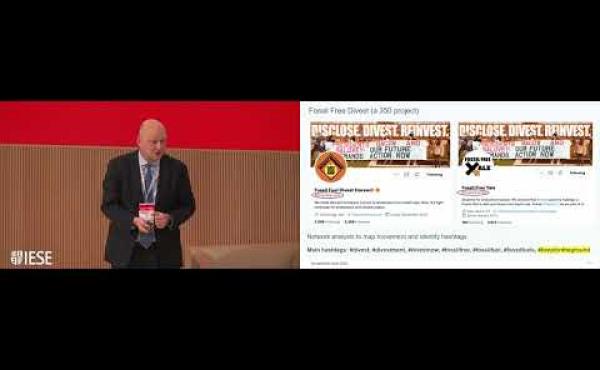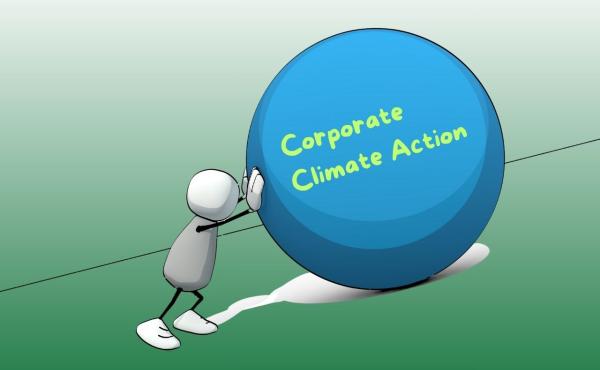
The ECGI blog is kindly supported by

Divestment: More Than Just Selling Shares
The traditional view in finance is that divestment – selling off assets, particularly shares in companies – is ineffective as a tool for activism. The argument is that selling only works if the sale is large and there are no buyers on the other side, otherwise someone else just buys the shares, and the company isn't truly impacted. Thus, finance often recommends engagement instead.
However, this perspective is challenged by the growing divestment movement and the significant opposition from industry and politicians to divestment efforts. If divestment truly didn't matter, why would there be such resistance?
This suggests that divestment can have an impact, and it introduces the idea that the choice isn't simply between "voice" (engagement) and "exit" (divestment). Instead, the more accurate framing is "voice and conditional exit".
Voice Through Divestment: Making a Statement
In our paper we define fossil fuel divestment announcements as "statements of disapproval that align actions with words for effectiveness". It's fundamentally about making a statement.
This form of "voice through divestment" starts with a narrative. For fossil fuels, the narrative is based on climate science: the simple insight is that known fossil fuel reserves must be kept in the ground to meet climate targets. These reserves are largely controlled by about 200 listed companies. The assertive part of the narrative is that divesting from these companies makes a statement that can stop the carbon from being brought up and burned. This approach is asserted to have worked in the past, such as with South Africa.
How Divestment Campaigns Work (and Resonate)
A campaign begins with this narrative and targets notable investors. When these key investors make a divestment announcement, it ideally resonates in society. This societal resonance is crucial because it increases long-term risk for all high-carbon emitters, not just the companies divested from, but also industries like cement and airlines. This increased carbon risk can even affect non-listed companies with outstanding bonds. Other investors who care about risk management then follow suit and divest, creating the traditional price channel effect. As a bonus, the campaign itself can pressure companies to change their behavior during the process.
To measure this societal resonance empirically, we analysed Twitter data, specifically focusing on retweets as a measure of amplification. Using LLMs, we classified the large volume of tweets and identified divestment announcements. The movement has seen over 1,700 divestment announcements, but only some truly resonated or "went viral".
Measurable Impact on Share Prices
Our study found a negative and significant impact on the share prices of the targeted companies (the Carbon Underground 200) around the time of viral divestment announcements. This contradicts the standard finance view that divestment should have no impact. Even more compellingly, there was also a negative impact on other high-carbon companies (like cement and airlines), consistent with the idea that the divestment narrative increased perceived long-term transition risk across the sector.
Interestingly, the size of the divesting entity doesn't always correlate with the biggest impact. While Ireland had the most viral announcement (related to a significant policy shift), the largest price impacts were seen from announcements by the Vatican and 12 major European cities, as well as surprisingly, Leonardo DiCaprio, despite his comparatively smaller net worth. This suggests the statement and resonance are key drivers of impact.
Voice AND Conditional Exit in Practice
The "voice and conditional exit" model is exemplified by institutions like the Church of England. They first engage with fossil fuel companies, and if engagement fails, they then publicly divest. This public divestment is covered in the news and explicitly states that the company has been divested from due to lack of change, but could be re-included if they transition. Companies reportedly dislike being publicly divested by asset owners.
In contrast, some asset managers, while they might have escalation strategies (engagement followed by potential divestment), may do so less publicly. This means there is no "voice through divestment," making it much less effective. Some asset managers like Aviva, as recently reported in the Financial Times, have even announced they are abandoning this escalation strategy.
The fact that there are anti-ESG laws imposing penalties on institutions attempting to divest from fossil fuels also supports the idea that divestment is perceived as having an impact; otherwise, why legislate against it?
Our study suggests that divestment activism, particularly when executed as public "voice through divestment," can be a powerful tool that goes beyond a simple transaction, capable of impacting share prices by increasing carbon risk and its perception across the market.
_______________
By Marco Becht (Université libre de Bruxelles and ECGI)
The ECGI does not, consistent with its constitutional purpose, have a view or opinion. If you wish to respond to this article, you can submit a blog article or 'letter to the editor' by clicking here.









